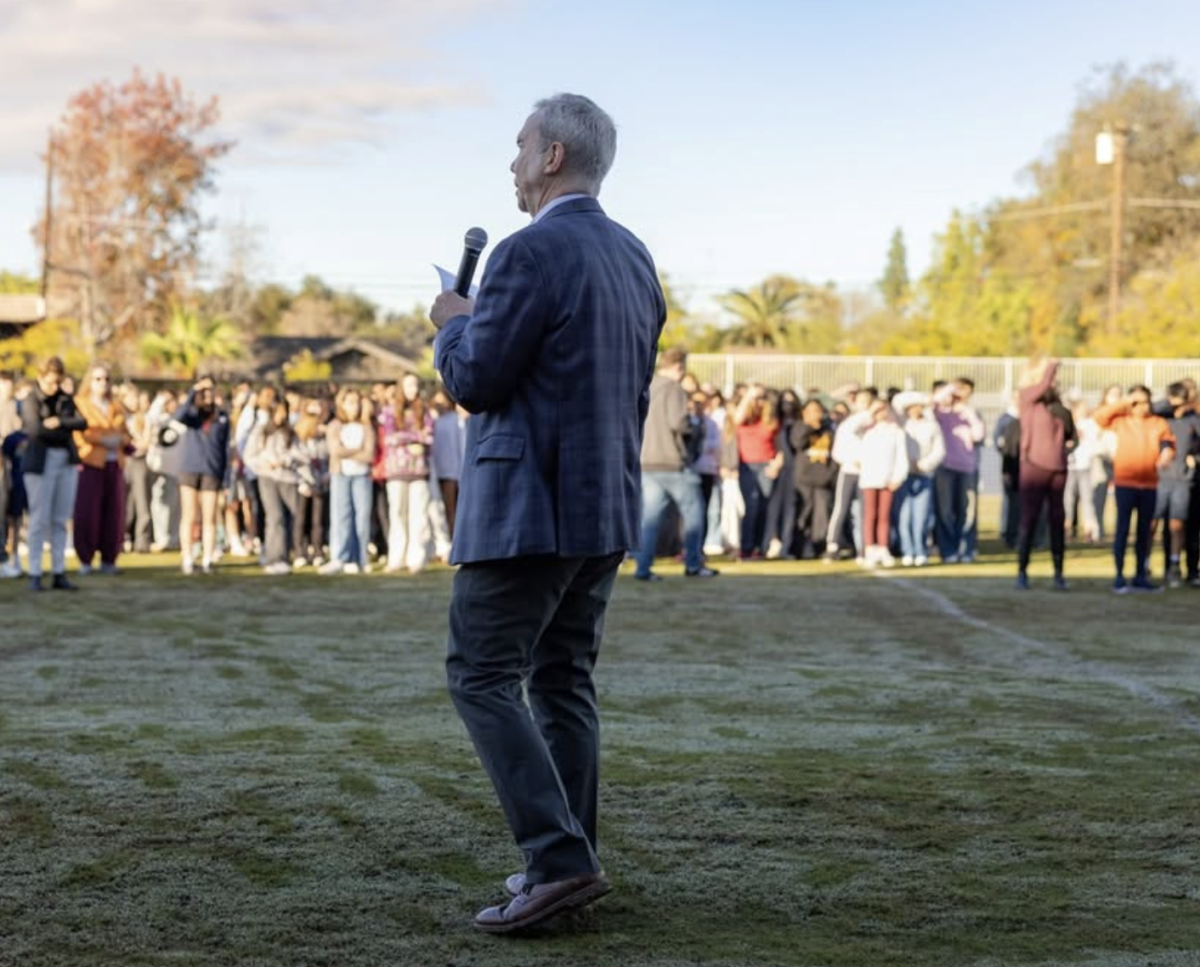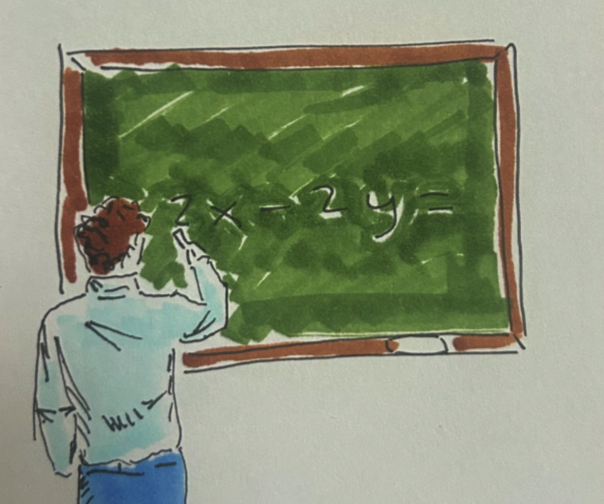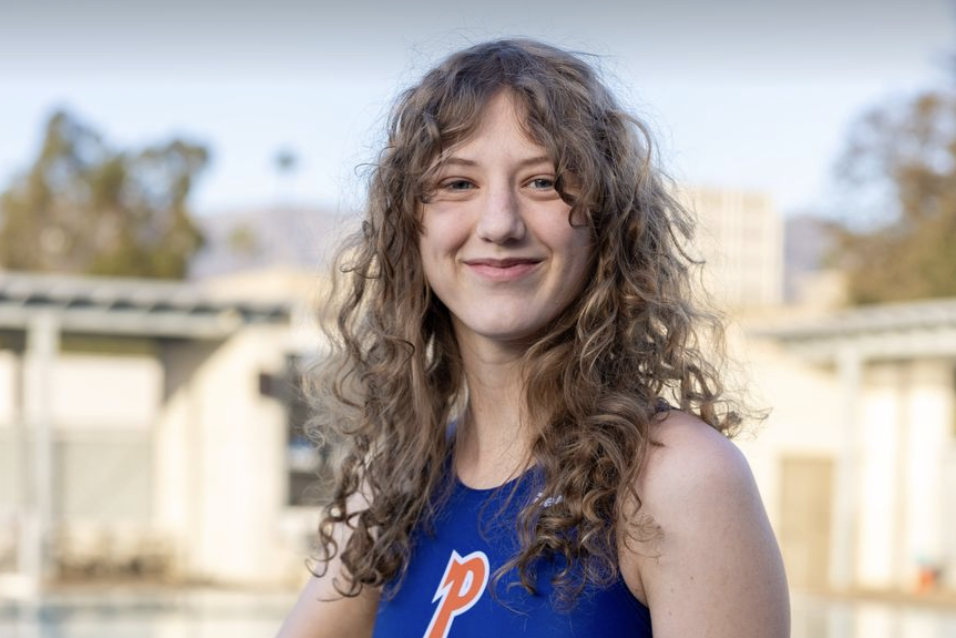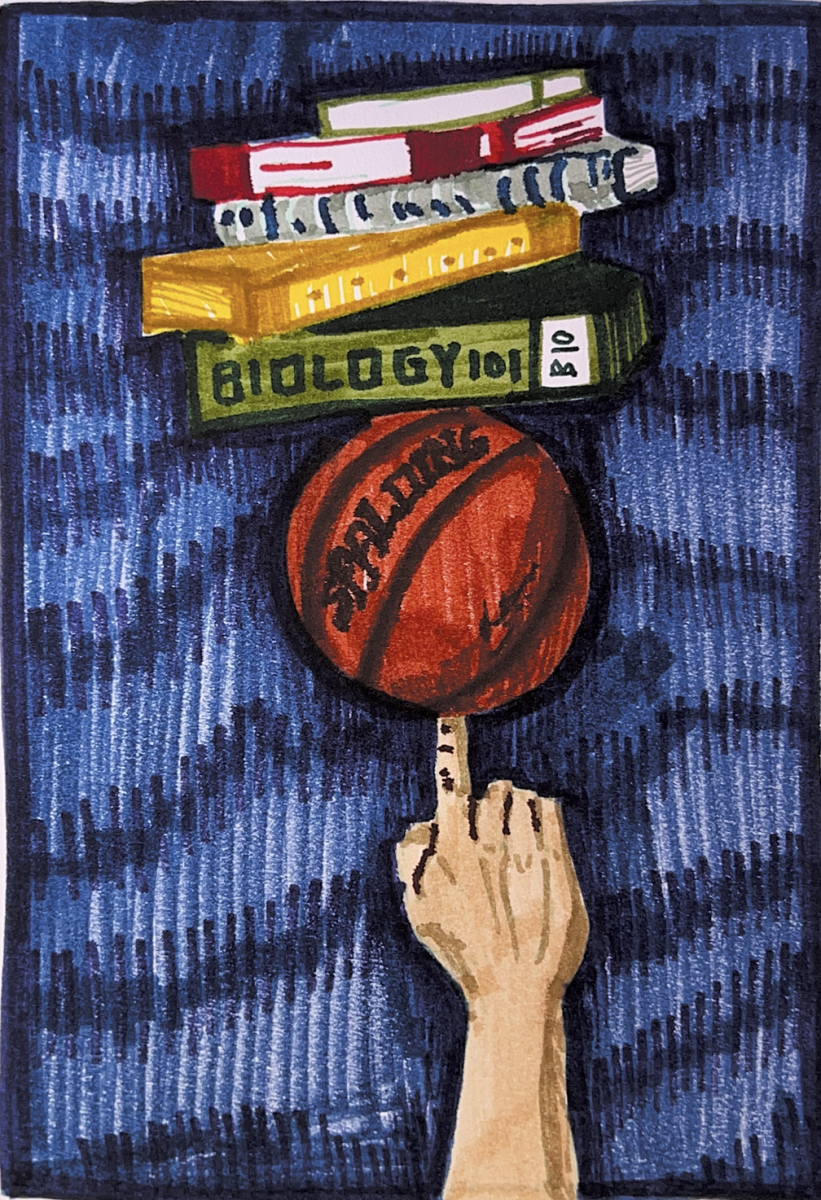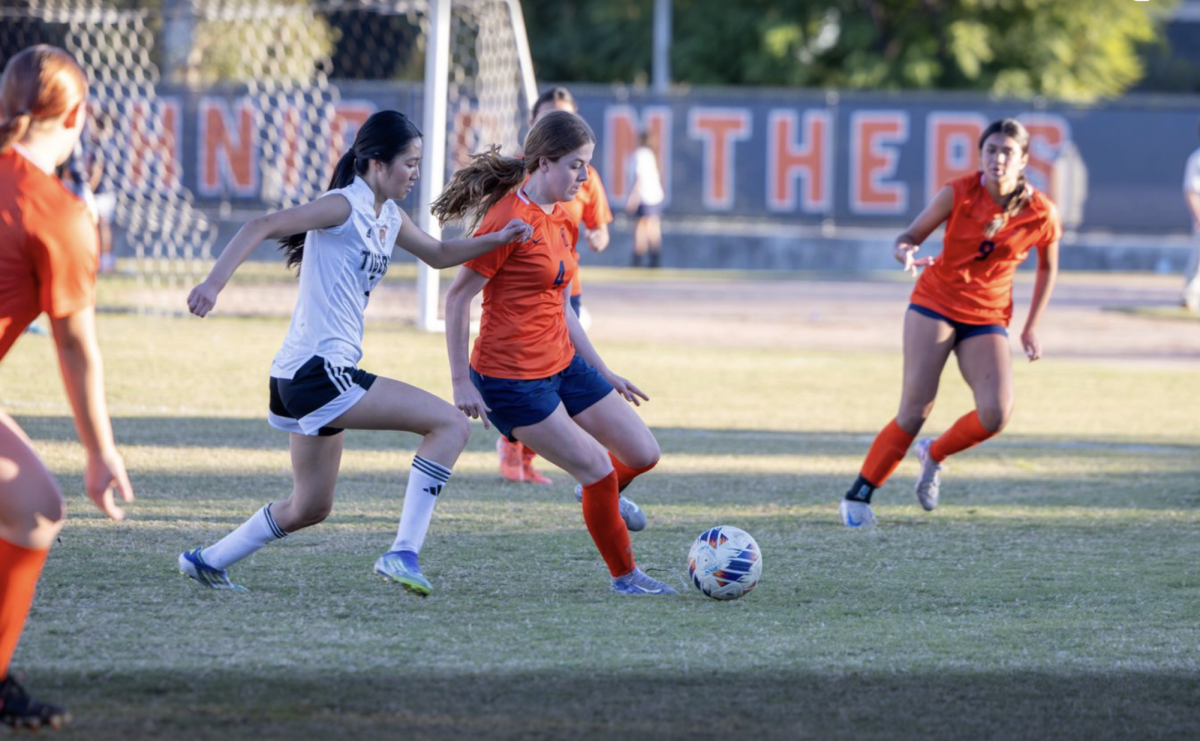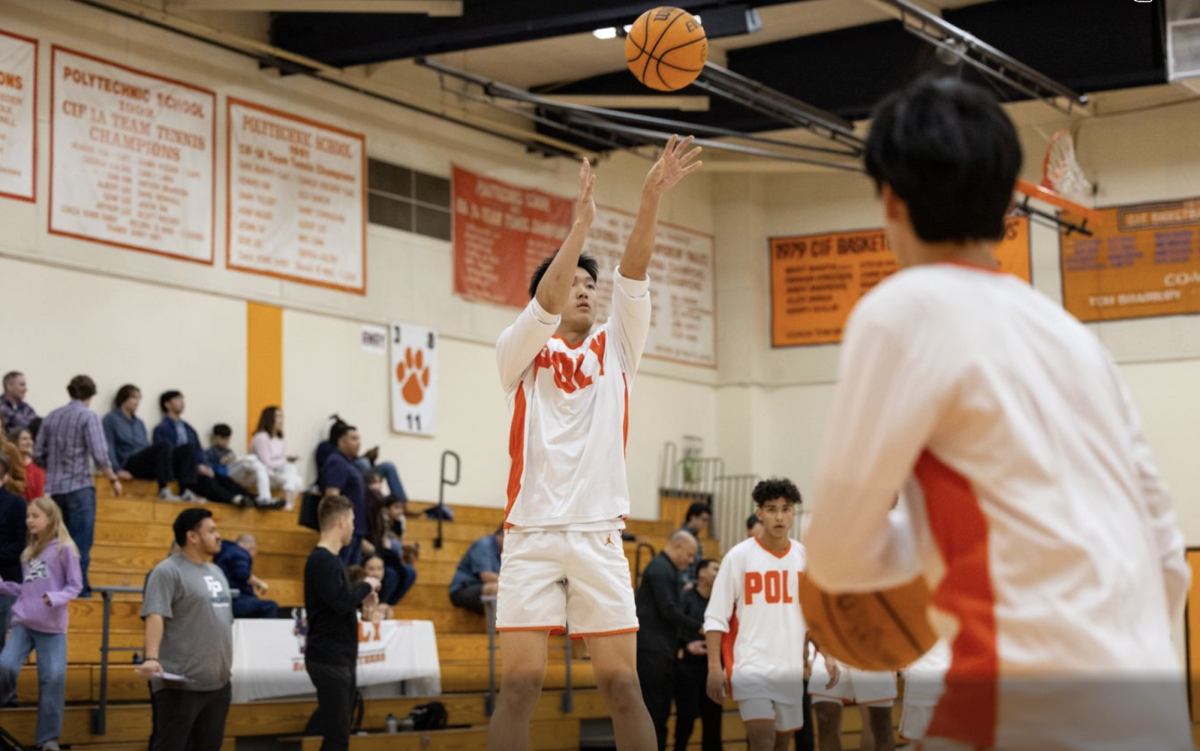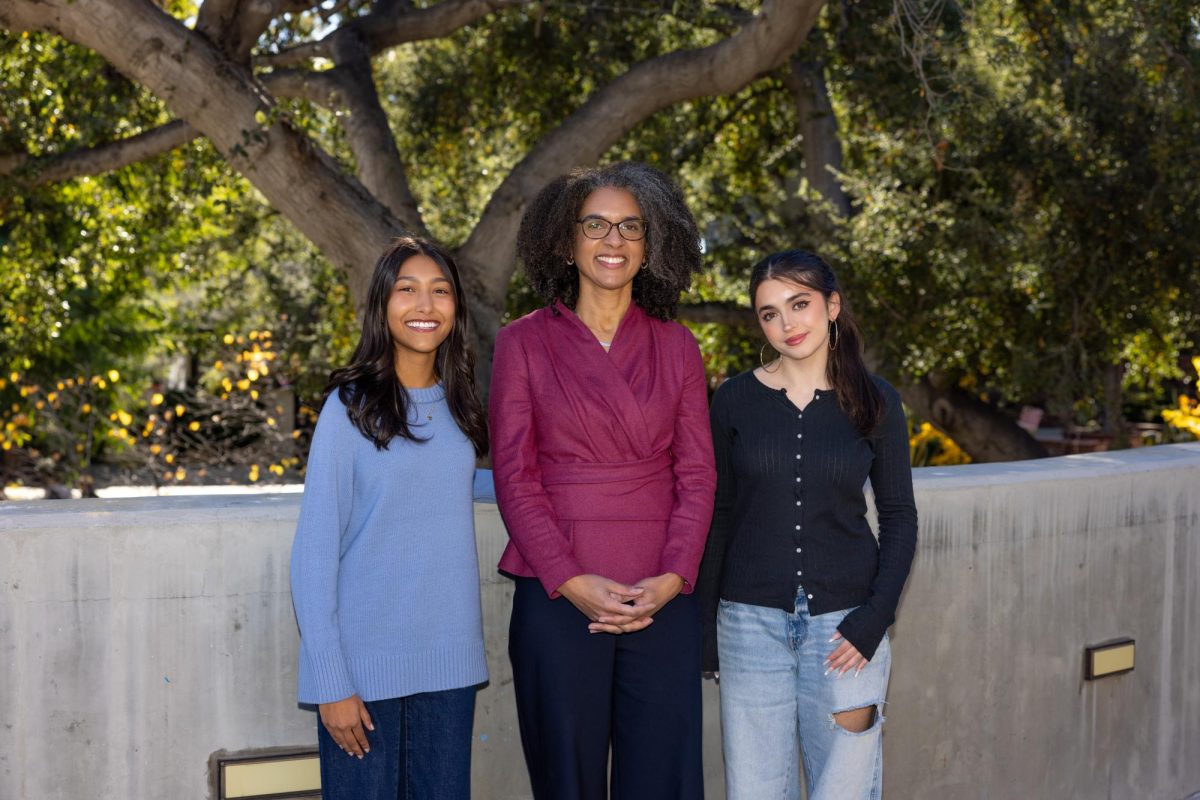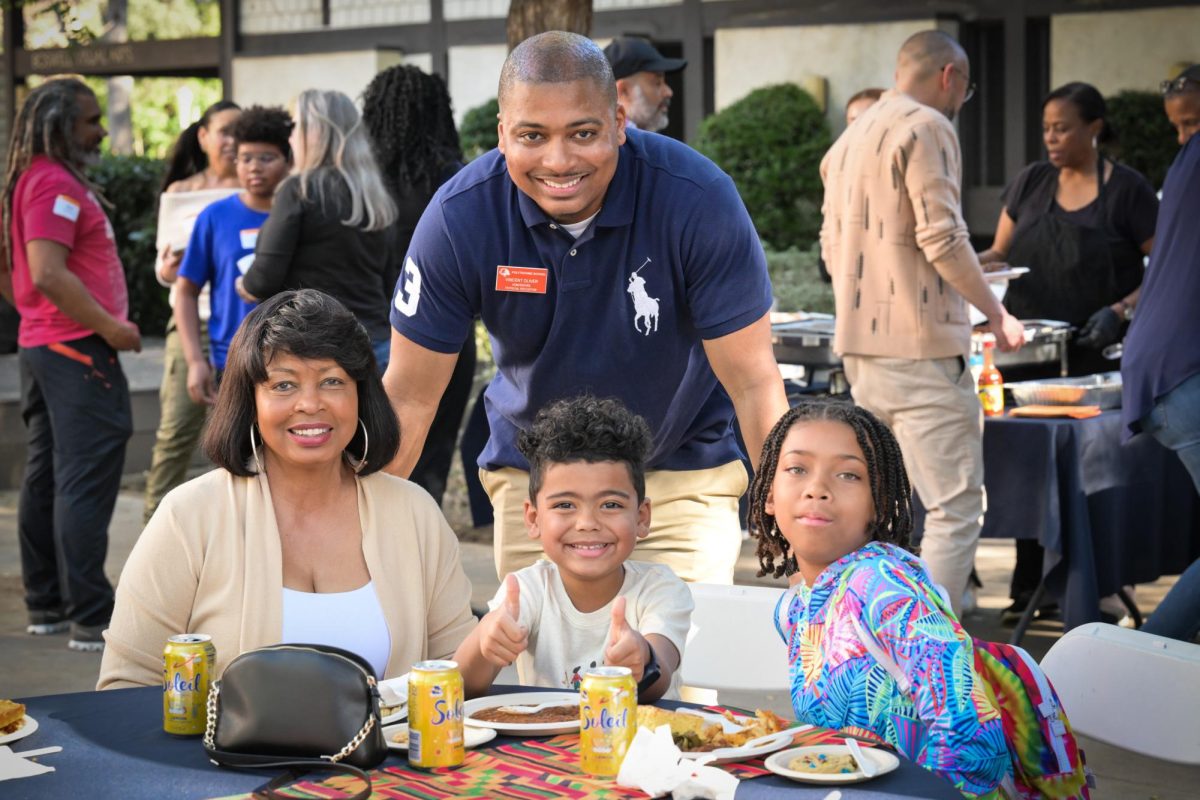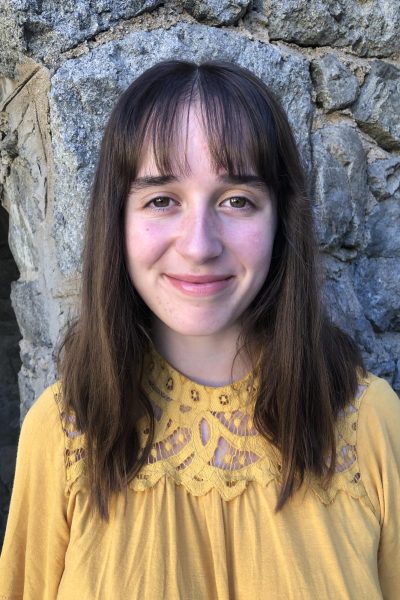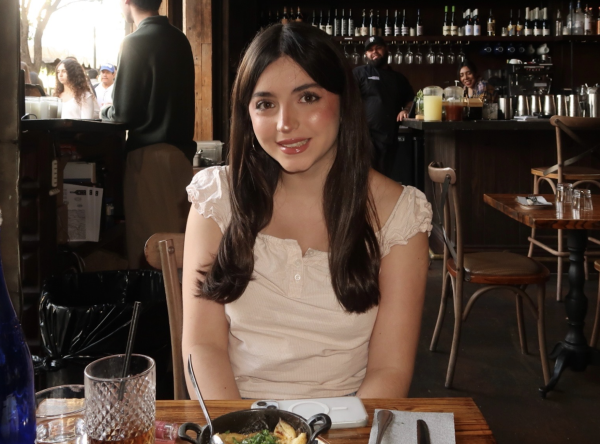School assemblies possess a unique educational value that is difficult to acquire in the classroom. Unlike classes, which are often bound to schedules and set curricula, bringing in guest speakers and panelists or spotlighting student organizations can offer intellectual enrichment by showcasing diverse perspectives and providing valuable insights into global issues that resonate with the student body. As Poly searches for guest speakers and begins the preliminary stages of orchestrating an engaging assembly, it’s important to consider what a compelling and appropriate assembly should look like and how we can be better audience members.
On Sept. 14, Poly hosted a joint Community Engagement, Outdoor Education and Human Development assembly, the first guest speaker event of the year. The assembly was intended to prepare students for Outdoor Ed, yet the one of the speakers’ excessive use of profanity and stated support for violence ultimately diverged the assembly from its intended purpose.
Human Development teacher Stephanie Monteleone, who co-organized the assembly with Student Community Engagement Coordinator Renee Larios, said that she and Larios held a Zoom meeting with speakers Capri Kasai and Dulce Real before the assembly.
“The intention behind the planning process,” Monteleone shared, “was to minimize unexpected outcomes.”
Yet the unexpectedly controversial nature of the assembly had some unexpected benefits. The assembly presented students with a different perspective than they are likely used to and provided an opportunity to think critically. It fostered conversations in and out of the classroom.
As students, we would have been able to focus more on the content of the assembly itself instead of fixating on its sensationalism if we had gone in with the expectation that the speakers could opine controversial or even radical views. Of course, there was no reason we would expect this: the preponderance of speakers at Poly share views that align with most of the community. Moreover, speakers are typically invited with the purpose of inspiring students.
“The 11th grade Human Development curriculum is focusing on connecting values with purpose and action,” Monteleone explained, “so the purpose of the assembly was to bring in individuals who are living and what they do embodies those same goals.” Much of the confusion during and after the assembly could have been avoided if we had not entered it with an expectation that we would be hearing from inspirational speakers.
Poly should find speakers who have controversial opinions and present them in a respectful manner. We can then go into those assemblies with that expectation, allowing all students to ask the speaker thoughtful questions that will further their understanding. Moreover, to prepare for guests who may share extreme opinions without notice, we can work to create a norm of going into all assemblies with the expectation that we may hear views that conflict with our own. In doing so, we will be actualizing Poly’s mission to foster inclusion by hearing from people with a myriad of perspectives.
However, while it is essential to spotlight varying perspectives and avoid censoring radical viewpoints, formal events such as assemblies ultimately reflect the hosting institution and necessitate professionalism from those on stage. Professionalism can manifest itself in several ways. One mustn’t think speakers should stifle their genuine opinions to skirt discomfort or adopt a stiff and formal tone to come across as credible or professional.
In truth, such an approach would be conducive to a stagnant, unengaging event that schools should strive to avoid. Yet, when dissecting professionalism and speaker authenticity, the question arises of how Poly can implore guests to speak candidly without infringing upon its institutional values.
The Sept. 14th assembly perfectly evinces an instance in which a speaker spoke their unfiltered truth to the extent of becoming ill-fitting and inappropriate for an educational space. Kasai’s profanity, while excessive in many instances, was far less alarming than their condoning of violence in activism. Larios, who directed the flow of the assembly and played an instrumental role in dealing with its aftermath by helping reaffirm Poly’s mission statement, shared her thoughts on how we as an institution can move forward from the event and continue to host impactful assemblies. When asked about how Poly and other schools can ensure speakers will feel uncensored to share their beliefs but maintain a level of professionalism appropriate for a school assembly, Larios remarked, “As a part of the vetting process, not only telling them the questions and why we are interested in their voice, we would share what our values are, share Poly’s mission with them, share our vision and our values, share the honor code so they know who we are and what we’re about.” While organizing inspiring assemblies may not amount to an exact science, when executed effectively, they have the potential to create inspiring and intellectually stimulating experiences that leave a lasting impression on students and further Poly’s mission.
Student leadership groups also utilize assembly time to share their culture and educate others on concepts not covered inside the classroom. While giving time to established groups on campus, we should also prioritize hosting off-campus individuals and groups, and not just ones that align with our institution’s values, to widen the number of perspectives on campus. Poly should seek to follow the lesson of “The Blind Men and the Elephant.” In this parable, six blind men examine one part of an elephant and describe what they come across based on their experience. Although they each share valid knowledge, without hearing the other men’s stories, they have an incomplete picture. Students have enjoyed hearing from Distinguished Alumni, Heinz Ethics speakers and GIP speakers, all members or partners of our community. When communicating with these speakers before they arrive, Laurianne Williams, the Dean of Student Life, shared that no matter the individual, they are expected to present themselves respectfully and professionally.
“We try to vet our speakers, but we want them to speak honestly,” Williams said.
The success of these assemblies hinges mainly on a speaker’s ability to connect with their audience. As such, it’s paramount that a speaker’s genuine passion for the topic they are presenting shines through as they share insights and address questions.
Recently, Poly hosted research scientist and literacy advocate Dr. Maryanne Wolf as a part of their Heinz Ethics Speaker Series, and from her speaking style alone it was immediately apparent that Wolf cares deeply about her work. She spoke enthusiastically and frequently engaged with the audience, encouraging them to share their thoughts and opinions.
Just as a speaker should be passionate about their area of expertise, our audience also needs to be attentive and mindful of the guest’s time. In comparison to fast-paced morning meetings with entertaining rivalry games, hour-long guest speaker events can cause sleep-deprived students to check text messages or close their eyes. Kasai called out students for being disengaged before starting to make humorous, yet violent, comments. As shown by the Sept. 14 assembly, Poly students collectively form a setting where the speaker feels pressure to be more sensational to keep us engaged.
In the final ten minutes of assemblies, hosts often offer the microphone to any students with questions. It is imperative to ask the right questions to thoughtfully further the conversation. Larios stated, “I think how we format assemblies moving forward when there are outside speakers is that we have our student leaders that helped organize the assemblies on stage with them with some student questions already determined in advance.” If we structure assemblies this way, we will be able to screen the questions beforehand but still hear student inquiries, the best of both worlds.
The questions students and faculty pose at the end of the assembly are insightful, profound and often controversial, forcing the speaker to respond in only a few seconds with an opinion on a topic that could be analyzed for hours, making us a difficult gathering to talk to and prepare for. At the Sept. 14 assembly, the conversation veered when a student asked the guests about their opinions on ecoterrorism, a topic the guests were not prepared for or able to explain in the time allotted, making their answer not fully developed, and perhaps not true to their insight. Instead of allowing an open Q&A section, our interactive portion of the assembly should follow Larios’ suggested model.
Although uncommon, students can propose speakers for an assembly. Unfortunately, our schedule permits scarce time for all of our students to come together, making bringing in outside guests a challenge and hindering the amount of communication between grades. We should increase the amount of school-wide assembly time to create more opportunities to hear from different viewpoints.
Poly must prioritize hearing from all perspectives to represent diversity in every aspect of the word. We look forward to hearing future speakers with unorthodox worldviews in order to expand our views of the world in a way that we can not accomplish solely in the classroom.

